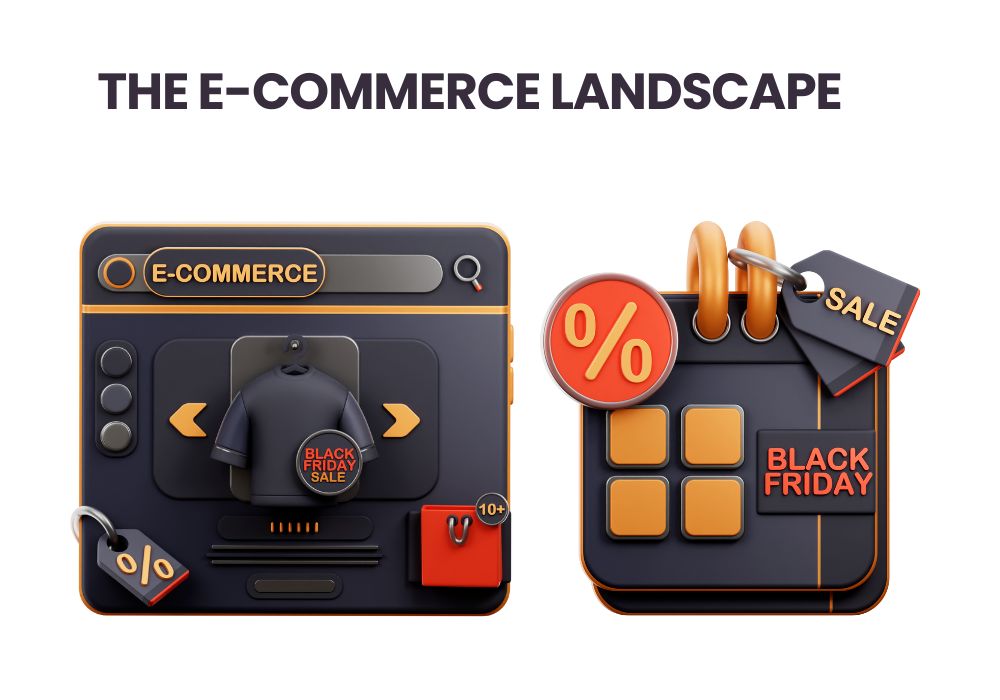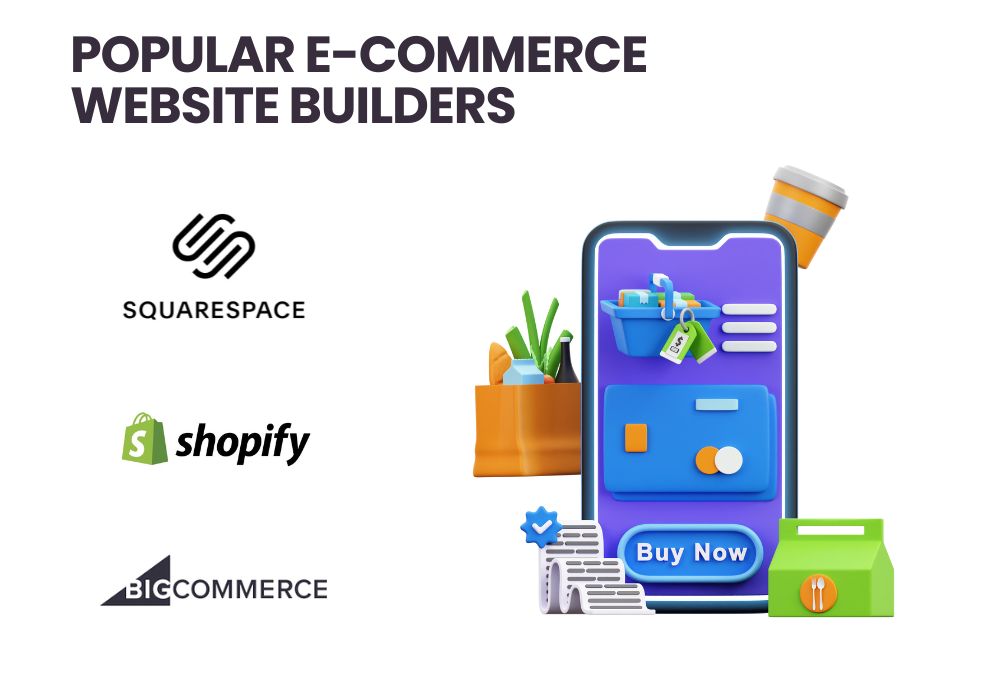Shopify dominates as the best website builder for e-commerce due to its comprehensive features and scalability. BigCommerce follows closely, catering well to high-volume businesses.
Choosing the right e-commerce website builder is crucial for the success of any online store. These platforms offer tools to create, manage, and optimize an online selling presence with ease. They range from user-friendly interfaces for small businesses to robust solutions for large enterprises.
Each builder comes with a spectrum of customizable templates, integration options, and support systems to facilitate a seamless shopping experience. Shopify leads the pack with its vast app marketplace, allowing merchants to extend functionality as needed. BigCommerce excels in out-of-the-box features suited for growth. Entrepreneurs must weigh their specific needs against each platform’s strengths to determine the perfect fit for their e-commerce venture.
Choosing between Shopify Vs Squarespace hinges on your needs; Shopify excels in e-commerce, while Squarespace shines in design and simplicity.
Evaluating The E-commerce Landscape

In-depth Look At Top Website Builders for E-commerce Contenders

- Shopify stands out with unmatched customization options and easy integration. It supports a vast range of plugins and themes. Users appreciate its intuitive dashboard and 24/7 customer support, making it a popular choice for businesses of all sizes.
- WooCommerce provides a seamless blend with the platform. It is renowned for its flexibility and extensive features. Setting up an online store is straightforward with WooCommerce’s user-friendly interface.
- BigCommerce excels in scalability, perfect for growing businesses. It features advanced SEO capabilities, maintenance-free hosting, and easily handles high-volume traffic.
- Wix is praised for its simplicity and drag-and-drop builder. It’s an excellent option for beginners with no coding skills required to create a beautiful online store.
- Squarespace is the go-to for design-conscious brands. It offers stunning templates and a user-friendly interface, combining elegance with e-commerce functionality.
Considerations For Your Business Needs
E-commerce success depends on the right website builder. Your goals must match the builder’s features. Sales tools, marketing options, and inventory management are vital. Choose one with essential capabilities like SEO and mobile responsiveness. Don’t overlook these must-haves.
The cost is key for business budgets. Monthly fees, transaction charges, and add-on costs add up. Pick a platform that offers transparent pricing. Seek options with low transaction fees. Ensure the total cost aligns with your financial plans. This keeps your business financially healthy.
Making The Final Decision
Selecting the right e-commerce website builder requires careful thought. Consider ease of use, design flexibility, and scalability. Your budget matters, and so does the pricing model. Always check for essential features like SSL certificates, payment options, and SEO tools.
Examine available integrations and customer support levels. Don’t forget to research testimonials and case studies. Real-world examples showcase each builder’s capabilities. This helps gauge performance and reliability.
| Feature | Importance |
|---|---|
| User-Friendly Interface | High |
| Customization Options | High |
| Data Security | Essential |
| Customer Support | Crucial |
| SEO Features | Must-have |
| Scalability | Vital |
Frequently Asked Questions Of Which is the best website builder for e-commerce?
What’s The Top Website Builder For Online Stores?
Shopify is widely regarded as the top website builder for online stores. It’s user-friendly, offering a variety of customizable templates and an extensive app store. This platform streamlines the setup process for e-commerce sites, making it ideal for both beginners and experienced merchants.
Does Woocommerce Work Well For E-commerce?
Yes, WooCommerce is a powerful plugin for WordPress that transforms a site into a fully functional e-commerce store. It’s open-source and highly customizable, suitable for businesses of all sizes. It excels when combined with WordPress’s robust content management features.
How Does Wix Fare For E-commerce Sites?
Wix provides a straightforward and intuitive platform for creating e-commerce websites. Its drag-and-drop interface makes it easy to design a store without needing to code. Wix’s e-commerce plans include various tools for online selling, marketing, and product management.
Is Bigcommerce Good For Scaling E-commerce?
BigCommerce is known for its scalability, making it perfect for online businesses looking to grow. It offers a range of built-in features and advanced SEO options. This builder can handle a large volume of products and transactions, with various integrations and payment gateways.
Conclusion
Selecting the right website builder for e-commerce is crucial for online success. Prioritize your needs, whether it’s customizability, ease of use, or powerful features. Shopify and Wix stand out for different reasons, but your choice should align with your business goals.
By choosing wisely, you’ll set the foundation for a prosperous digital storefront.
The online shopping world is growing quickly. More people buy things online now. Stores online make lots of money.
Let’s talk about what an online store needs.
- Easy-to-use design helps shoppers buy easily.
- Fast websites keep shoppers happy.
- Safe payment methods protect money and details.
- Mobile-friendly sites let people shop from phones.
- Customer service answers shopper questions.
In-depth Look At Top Website Builders for E-commerce Contenders

- Shopify stands out with unmatched customization options and easy integration. It supports a vast range of plugins and themes. Users appreciate its intuitive dashboard and 24/7 customer support, making it a popular choice for businesses of all sizes.
- WooCommerce provides a seamless blend with the platform. It is renowned for its flexibility and extensive features. Setting up an online store is straightforward with WooCommerce’s user-friendly interface.
- BigCommerce excels in scalability, perfect for growing businesses. It features advanced SEO capabilities, maintenance-free hosting, and easily handles high-volume traffic.
- Wix is praised for its simplicity and drag-and-drop builder. It’s an excellent option for beginners with no coding skills required to create a beautiful online store.
- Squarespace is the go-to for design-conscious brands. It offers stunning templates and a user-friendly interface, combining elegance with e-commerce functionality.
Considerations For Your Business Needs
E-commerce success depends on the right website builder. Your goals must match the builder’s features. Sales tools, marketing options, and inventory management are vital. Choose one with essential capabilities like SEO and mobile responsiveness. Don’t overlook these must-haves.
The cost is key for business budgets. Monthly fees, transaction charges, and add-on costs add up. Pick a platform that offers transparent pricing. Seek options with low transaction fees. Ensure the total cost aligns with your financial plans. This keeps your business financially healthy.
Making The Final Decision
Selecting the right e-commerce website builder requires careful thought. Consider ease of use, design flexibility, and scalability. Your budget matters, and so does the pricing model. Always check for essential features like SSL certificates, payment options, and SEO tools.
Examine available integrations and customer support levels. Don’t forget to research testimonials and case studies. Real-world examples showcase each builder’s capabilities. This helps gauge performance and reliability.
| Feature | Importance |
|---|---|
| User-Friendly Interface | High |
| Customization Options | High |
| Data Security | Essential |
| Customer Support | Crucial |
| SEO Features | Must-have |
| Scalability | Vital |
Frequently Asked Questions Of Which is the best website builder for e-commerce?
What’s The Top Website Builder For Online Stores?
Shopify is widely regarded as the top website builder for online stores. It’s user-friendly, offering a variety of customizable templates and an extensive app store. This platform streamlines the setup process for e-commerce sites, making it ideal for both beginners and experienced merchants.
Does Woocommerce Work Well For E-commerce?
Yes, WooCommerce is a powerful plugin for WordPress that transforms a site into a fully functional e-commerce store. It’s open-source and highly customizable, suitable for businesses of all sizes. It excels when combined with WordPress’s robust content management features.
How Does Wix Fare For E-commerce Sites?
Wix provides a straightforward and intuitive platform for creating e-commerce websites. Its drag-and-drop interface makes it easy to design a store without needing to code. Wix’s e-commerce plans include various tools for online selling, marketing, and product management.
Is Bigcommerce Good For Scaling E-commerce?
BigCommerce is known for its scalability, making it perfect for online businesses looking to grow. It offers a range of built-in features and advanced SEO options. This builder can handle a large volume of products and transactions, with various integrations and payment gateways.
Conclusion
Selecting the right website builder for e-commerce is crucial for online success. Prioritize your needs, whether it’s customizability, ease of use, or powerful features. Shopify and Wix stand out for different reasons, but your choice should align with your business goals.
By choosing wisely, you’ll set the foundation for a prosperous digital storefront.
